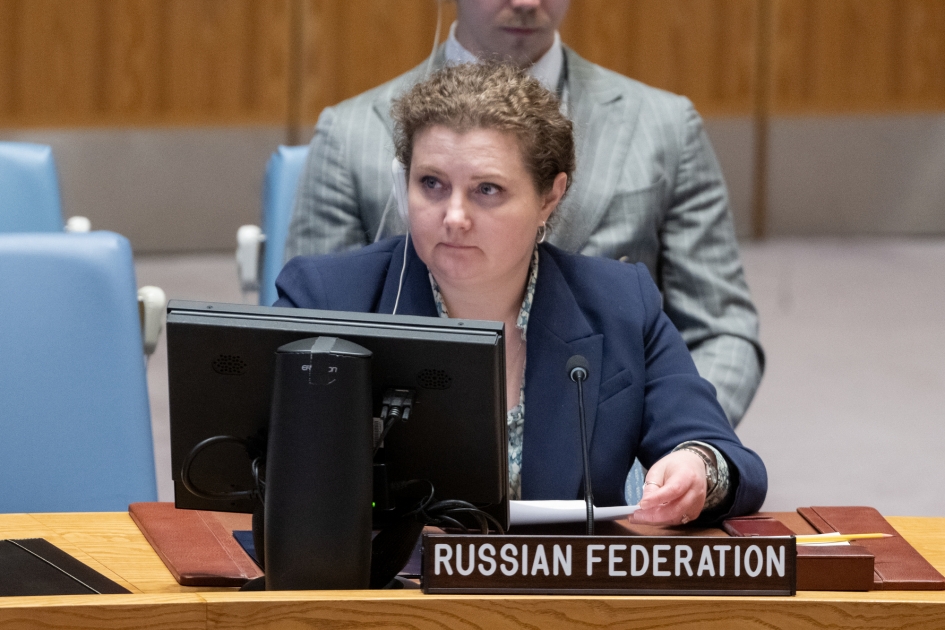Statement by Deputy Permanent Representative Anna Evstigneeva at UNSC briefing on Colombia
Mr.President,
We thank SRSG Massieu and civil society briefer Yolanda Perea Mosquera for their presentations. We welcome Foreign Minister of Colombia, Mr. Álvaro Leyva, to this meeting.
After seven years, the Final Peace Agreement remains a solid foundation for national reconciliation and post-conflict transformation in Colombia. We note that the current government has repeatedly and at various levels emphasized its commitment to full implementation of the FPA.
We see Bogota’s consistent steps towards implementing a crop reform, in particular the allocation of lands to victims of the decades-long internal armed conflict. We note that 73% of the more than 700,000 hectares of distributed land will go to indigenous peoples and Afro-Colombian communities.
We welcome the voluntary commitment of the authorities to implementing 60% of the ethnic provisions of the FPA until 2026. It is clear that greater efforts are required in the area of strengthening state authority on the ground, implementation of crop substitution programs, and the socio-economic and political reintegration of former rebels.
In this context, we note the generally peaceful convening of municipal and regional elections in October 2023, which resulted in the election of 18 ex-combatants to various bodies. One of them was mayor of Cumaribo.
Unfortunately, the overall level of violence against participants in peacebuilding efforts remains inordinately high. In the first week of this year, there have already been two murders of former FARC members. In seven years, more than 400 people have been killed. Providing adequate security guarantees to the signatories of the agreement must be a priority for the authorities. Without this, it is impossible to speak not only about full implementation of the FPA, but also about the practicability of other peace agreements.
We realize how difficult and painstaking the government's dialogue with other rebel groups is, such as the National Liberation Army (ELN) and the Central General Staff. We note that ceasefire regimes with these militias, although fragile, are generally respected. We emphasize the role of the United Nations Verification Mission in Colombia in monitoring the agreements with the ELN and establishing contacts between the parties in accordance with the mandate received from the Security Council. We keep track of developments at the negotiation tracks with both groups.
Unfortunately, the humanitarian effect of the ceasefire in a number of regions was thwarted by ongoing violence among the armed groups and their continued crimes against civilians. Kidnapping for ransom, extortion and forced conscription of minors are the problems that will have to be curbed. We are particularly concerned about the activation of the Gulf Clan criminal drug group, which is attempting to replace state presence in the territory under its control by levying money and regulating the movement of citizens and their labor.
We cannot but agree with the conclusion of the Secretary-General's report that despite the faithful efforts of the government, the alarming security situation in Colombia remains the main obstacle to a full implementation of FPA and other peace agreements.
Against this grave challenge, it is respectable that the Colombian government is strictly committed to dialogue and has not slipped into the confrontational rhetoric or forceful acts that used to be typical of the previous administration. At the same time, we note the international community's demand for greater awareness of the strategy and tactics of the "total peace" policy.
We believe that in order to increase the impact of the Verification Mission in Colombia and broader activities of the UN in verifying the current peace agreements, it would be useful for the Colombian authorities to submit to the Council ideas on the goals and objectives of their peacebuilding efforts and, most importantly, on the time frame for achieving them. Such a road map would help members of the Security Council, during their forthcoming visit to the country, to assess more comprehensively the results of the steps already taken and, if necessary, to identify possible adjustments to the modalities of the work of the Verification Mission.
Russia will continue to participate actively in international efforts to promote reconciliation in Colombia and support the activities of UNVMC under the lead of Carlos Ruiz Massieu.
Thank you.
